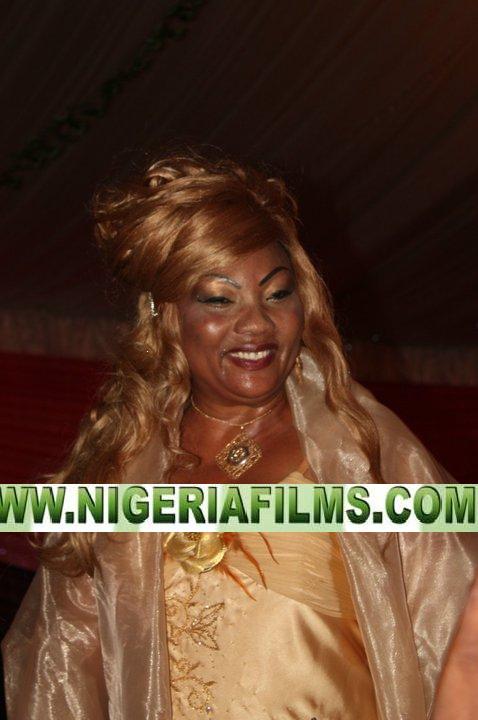
Coming on the heels of the recent rift between Nigerian actors and the Ghanaian government where Nollywood actors are expected to be heavily levied before they can be allowed to be cast in movies produced in Ghana, veteran actor, Francis Duru has slammed the Ghanaian government for making things difficult for Nigerian actors and movie experts who have contributed immensely to the growth of the Ghanaian film industry.
In a chat with NFC, the pioneer actor who was hurled into the limelight with his roles in popular flicks like ‘Rattle Snake,’ ‘Living in Bondage’ and many other movies made it clear that Ghana ought to be grateful to Nigerian actors and actresses who have helped Ghanaians develop their country’s movie industry rather than asking them to pay heavily before being allowed to be cast in films produced in Ghana or being permitted to shoot films in Ghana.
“How can the Ghanaian government ask us to come and pay first before we shoot movies in Ghana? I believe that they should be thankful to us for helping them develop their movie industry to the level it is now,” he said. He also blamed Nigerians for not appreciating the huge reservoir of talent at its disposal. “All I can say about this issue is that we as Nigerians do not value what we have here and you know that when you don’t value a thing, abuse is inevitable.”
He stressed that the mistake Nigerian actors made was to have been too open-minded which he said, has allowed Ghanaians to learn from them. He noted that this explains why they have suddenly turned around to work against Nigerians. He however, urged Nigerian practitioners to believe in their abilities in order to raise the standard of their individual and collective game.
The Abuja-based actor also lamented the spate of piracy that has robbed producers of their hard-earned investments in movie production; blaming the respective government agencies and industry practitioners alike for paying lip service to the crusade against piracy in the country.
Duru, who attempted to proffer solutions to the problem of piracy in Nigeria advocated for a reduction in the unit price of home video CDs.
He explained that this would further endear more people to purchase copies of the movies. “Imagine if you do 10 million copies of your movie and you sell each for N100.00. Why would anybody go and rent it or mass produce it; when you have already flooded the market with it,” he asked. He added that “the simple truth is that until we get distribution right in this country, piracy will continue.”
Speaking further, he also noted that distribution should not be concentrated in the hands of few individuals, but qualified specialists and bodies within the industry. He stressed that even those complaining about piracy are practicing pirates themselves.
When asked if the release of films at cinemas before home video release was not a better way of ensuring the success of the movie, the University of Port Harcourt-trained actor disagreed with this strategy saying the cinema is an elitist culture practiced in advanced countries of the world and would not reach the type of audience Nigerian producers are targeting.
“Cinema, as a culture is elitist in nature and is not so ingrained in the Nigerian way of life but when you have a product that cuts across housewives, artisans, students, ‘Okada riders,’ middle class and even senators and governors, you want to make sure they all have access to it,” he explained.
Speaking on the activities of the Nigerian Films and Censors Board (NFCB) in the task of regulating the industry especially in the area of distribution and piracy, Duru noted that the agency has not done enough. He added that if the National Food and Drug Administration and Control (NAFDAC) can be successful in fighting drug counterfeiting in the country, there is no reason why the NFCB should not be successful in their regulatory work.
“
But what you find is that today, the Censors Board is just paperwork, without any bite, and today, they are still in contention with the Nigeria Copyright Commission (NCC) over the issue of piracy in Nigeria.”
He also berated the level of mediocrity in the industry that has allowed marketers to steal the show from professionals; who have restricted themselves to the peanuts being handed over to them by the marketers with fat pockets.
According to him, “It even gets pathetic when you look at what happens today when you look at people who have contributed so much to the industry and have nothing to show for it. What you now see is that even though people need your product, you are restricted to peanuts because forces of distribution and piracy have not allowed your work to show.”
The actor, who is also the Director, Media and Publicity for the National Anti-Human Trafficking Campaign said the appointment of professionals from the Nigerian entertainment industry to high positions in government is a welcome development, which shows the level of confidence the society has in the industry. This was against the backdrop of the appointment by the Imo State Government as an Adviser to the Governor, Ikedi Ohakim, of former president of the Actors Gild of Nigerian (AGN), Ejike Asiegbu; Richard Mofe Damijo’s appointment as a Commissioner in Edo State, as well as former radio presenter, Livi Ajuomuna’s appointment as the Head of the Corporate Affairs Department of the Nigerian National Petroleum Corporation (NNPC).



















